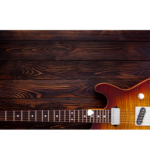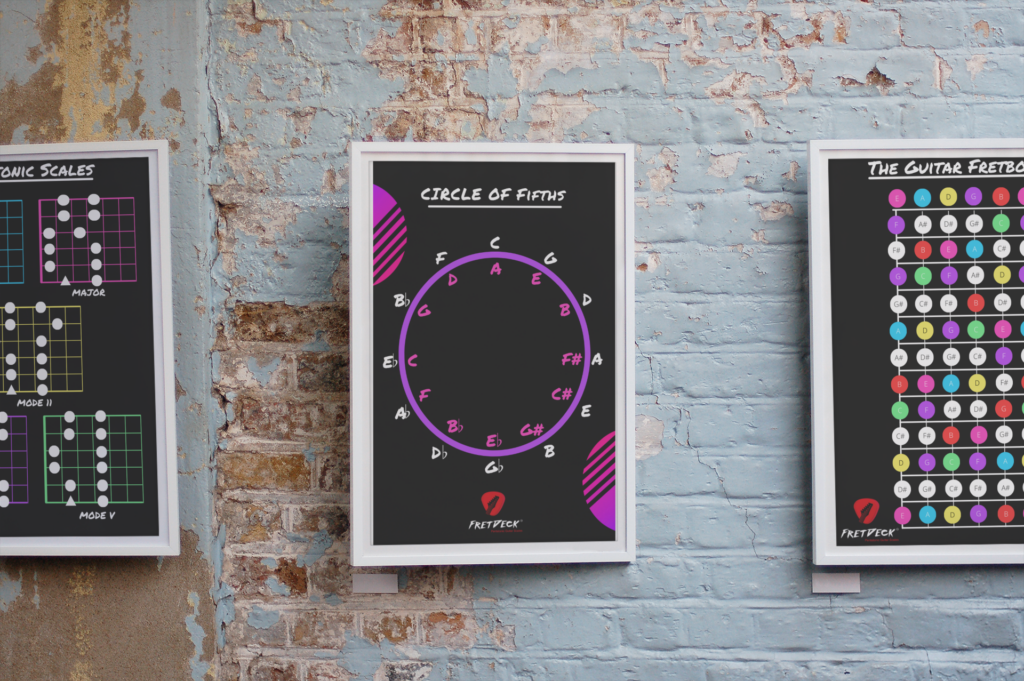Learning to play the guitar is an exciting journey filled with endless possibilities. Whether you’re a complete novice or someone who’s been strumming for a while, understanding guitar scales is essential for unlocking your full potential as a musician. By mastering these fundamental concepts, you’ll lay a solid foundation for your guitar playing journey. Scales can help you unlock the fretboard and improvise.
Understanding Guitar Scales:
Let’s clarify what guitar scales are and why they’re important. Simply put, a scale is a series of notes arranged in a specific pattern, which creates a musical framework for improvisation, melody creation, and understanding harmony. For beginners, scales provide a roadmap for navigating the fretboard and developing finger dexterity and muscle memory.
Pentatonic Scales: Guitar Scales for Beginners
When it comes to guitar scales for beginners, the pentatonic scale reigns supreme. Derived from the Greek word “penta,” meaning five, the pentatonic scale consists of five notes per octave. Its simplicity and versatility make it a favorite among guitarists of all levels, from beginners to seasoned professionals.
There are two main types of pentatonic scales: the major pentatonic scale and the minor pentatonic scale. Let’s break down each one:
- Major Pentatonic Scale: The major pentatonic scale is widely used in various genres, including rock, country, and blues. Its bright and uplifting sound makes it perfect for creating melodic lines and solos. The formula for the major pentatonic scale is: 1 – 2 – 3 – 5 – 6, where each number represents the scale degree relative to the major key.
For example, in the key of G major, the G major pentatonic scale consists of the following notes: G – A – B – D – E. To play this scale on the guitar, you can start from the third fret of the low E string and follow the pattern across the fretboard.
- Minor Pentatonic Scale: The minor pentatonic scale is the cornerstone of blues and rock music, known for its soulful and bluesy tones. It’s closely related to the natural minor scale and is characterized by its bluesy sound. The formula for the minor pentatonic scale is: 1 – b3 – 4 – 5 – b7, where “b” denotes a flat note.
Using the key of A minor as an example, the A minor pentatonic scale consists of the following notes: A – C – D – E – G. To play this scale on the guitar, you can start from the fifth fret of the low E string and follow the pattern across the fretboard.
Combining Scales with Basic Chords:
While scales are valuable on their own, they truly come to life when combined with chords. Basic open chords such as G, C, D, E, and A serve as the perfect backdrop for improvisation and melody creation. By integrating scales with chords, you can add a beautiful combination of guitar tones to your playing while enhancing your understanding of music theory.
Here are some tips for combining scales with basic chords:
- Arpeggios: Experiment with arpeggiating chords, which involves playing each note of the chord individually. By incorporating notes from the pentatonic scale into your arpeggios, you can create melodic phrases and fills that enhance the chord progression.
- Scale Runs: Practice playing scale runs between chord changes to add movement and fluidity to your playing. For example, you can transition from one chord to another by ascending or descending through the pentatonic scale, creating smooth and seamless transitions.
- Soloing: Once you’re comfortable with basic chords and scales, try your hand at soloing over chord progressions. Start by improvising simple melodies using the pentatonic scale, gradually building confidence and creativity as you explore different techniques and musical ideas.
Conclusion:
Mastering guitar scales for beginners is an essential step towards becoming a proficient and knowledgeable guitarist. By focusing on pentatonic scales and integrating them with basic chords, you’ll develop the skills and confidence needed to express yourself musically and unlock your full potential on the instrument. We also have a few guitar courses that will help you with chord progressions and pentatonic scales.

Download The FretDeck & Pentatonic Secrets Course!
Download Our Course









